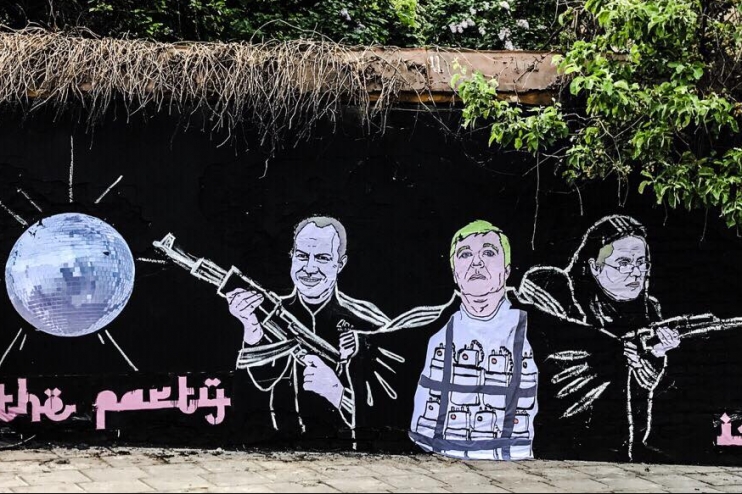The fast food chain “Keulė Rūkė” received a €1,500 fine from the State Consumer Rights Protection Authority for violating the principles of public morality and denigrating religious symbols in advertising.
The decision provoked varying responses from the Lithuanian public: some are happy that the affront was stopped, others are convinced that it undermines freedom of speech.
Bistro famous for political speeches
The bistro is famous not only for its unconventional interior design, but also for its bold, ironic statements and for its particularly well-known political graffiti. The most widely-covered of them, attracting attention even from international media, was a picture of the Russian President Vladimir Putin and the US President Donald Trump, reminiscent of the historic Berlin Wall kiss.
The wall in front of the bistro was recently decorated with yet another illustration, this time aimed at three politicians of Lithuanian Farmers and Greens Union and likening to “Islamic State terrorists.” This way, the authors were expressing their opinion on the alcohol control laws initiated and passed by these politicians.
“Keulė Rūkė” does not shy away from religious symbols (the cross, the prayer book or the crucifix) in promotional photos on its Facebook account. It is these ads in particular that offended people, who asked the Public Prosecutor’s Office to launch a pre-trial investigation.
Fined for denigrating religious symbols
The Prosecutor’s Office handed the investigation over to the State Consumer Rights Protection Authority, which found that the ads violated the Law on Advertising. The latter provides that advertising may be prohibited if it violates the principles of public morality or denigrates religious symbols.
The SCRPA reasoned that the ads of “Keulė Rūkė” went beyond moral bounds because the religious symbols were used disrespectfully for commercial purposes, thus offending believers.
“The ads provoke debate on issues important to society”
The decision sparked public discussions about the very concept of public morality, as well as the limits of free speech and when free speech should be restricted.
According to Karolis Liutkevičius, a lawyer working for the Human Rights Monitoring Institute in Lithuania, such advertising falls under the freedom of expression provisions of the European Convention on Human Rights precisely because it provokes debate on issues of important to society.
The owners of the bistro disagree with the fine and plan to appeal the decision, stressing that it infringes on freedom of expression. Dominykas Čečkauskas, one of fast food joint’s founders, claimed that the ads were not meant to offend Christians, but instead to express an alternative opinion on religion and censorship.







